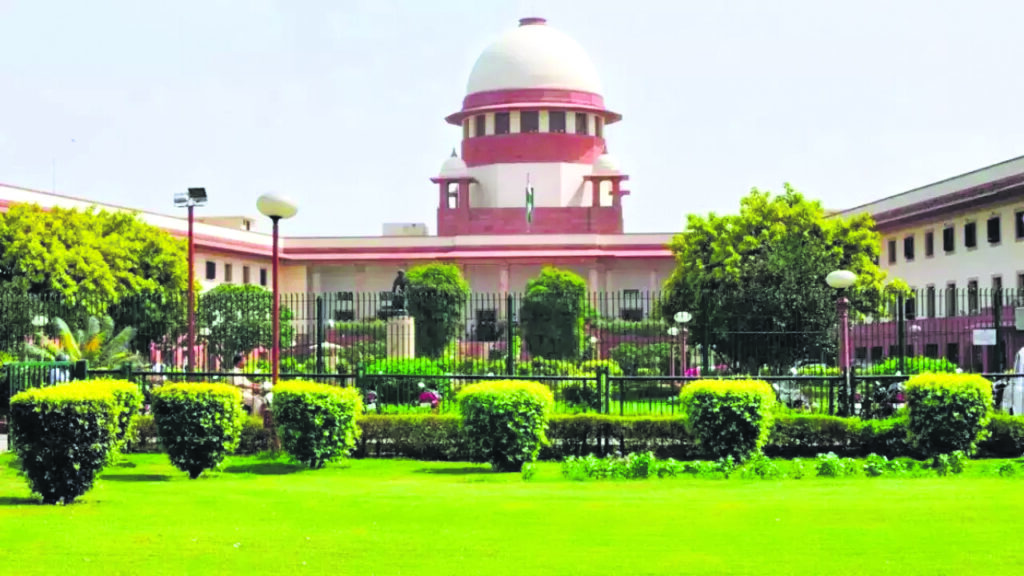Rehan Khan
On 15th July, the Supreme Court of India has observed that pay parity cannot be claimed as an indefeasible enforceable right, except where a competent authority has consciously decided to equate two posts. This ruling came as the Court adjudicated a civil appeal against an order from the Allahabad High Court, which had dismissed an intra-court appeal by the State challenging a Single Judge’s judgment due to a delay in filing.
The division Bench, comprising Justice Surya Kant and Justice K.V. Viswanathan, emphasized that the determination of pay scales is a policy decision typically based on the recommendations of an expert body such as the Pay Commission. The Court clarified, “It needs no emphasis that prescription of pay scale for a post entails Policy decision based upon the recommendations of an expert body like Pay Commission. All that the State is obligated to ensure is that the pay structure of a promotional or higher post is not lower than the feeder cadre.”
Furthermore, the Bench asserted that pay parity cannot be claimed as an enforceable right unless the Competent Authority has made a deliberate decision to equate two posts, irrespective of their differing titles or qualifications.
The Court also noted that the incidental granting of the same pay scale to two or more posts, without an explicit equation among them, does not constitute an anomaly that infringes the Right to Equality under Article 16 of the Constitution.
In this case, the appellants were represented by Additional Solicitor General K.M. Nataraj and Additional Advocate General Sharan Dev Singh Thakur. The respondents were represented by Senior Advocate Dushyant Dave and Advocate-on-Record Shubhangi Tuli.
The case revolved around an alleged pay scale discrepancy between Sub-Deputy Inspectors of Schools/Assistant Basic Shiksha Adhikaris (SDI/ABSA) and Deputy Basic Shiksha Adhikaris (DBSA) of the Basic Education Department, Uttar Pradesh, in comparison to the Headmasters of Junior High Schools. The issue originated from a Government Order issued following the recommendations of the Fifth Central Pay Commission. This order aligned the pay scales of state government teachers, including Headmasters, with those of central government teachers.
As a result, the basic pay scale of Headmasters was revised, but no changes were made to the pay scales of SDI/ABSA and DBSA, making their pay scales lower than those of the Headmasters. A Single Judge directed the state to grant a higher pay scale to SDI/ABSA and DBSA. The state’s intra-court appeal against this decision was dismissed by the High Court, which upheld the Single Judge’s judgment. Dissatisfied with this outcome, the state approached the Supreme Court.
The Supreme Court addressed the issue, noting that once leave has been granted in a Special Leave Petition, the doctrine of merger comes into play. This doctrine states that the order under challenge merges with that of the appellate forum, making the latter the effective and binding decision, irrespective of whether the appeal is dismissed with or without reasons. The Court pondered whether setting aside the impugned order of the Division Bench and remitting the intra-court appeal for fresh adjudication on merits would serve the cause of justice, even if it were a fit case for condonation of delay.
The Bench highlighted that “Equally well settled is that the creation, merger, de-merger or amalgamation of cadres within a service to bring efficacy or in the administrative exigencies, is the State’s prerogative. The Court in exercise of its power of judicial review would sparingly interfere in such a policy decision, unless it is found to have brazenly offended Articles 14 and 16 of the Constitution.“
The Court further observed that disputes over pay parity frequently lead to prolonged litigation, causing significant hardships for the parties involved as they await resolution. Often, the delay in adjudication renders these matters infructuous by the time a decision is reached. Given this context, the Supreme Court partially allowed the appeal, setting aside the impugned judgment of the Division Bench entirely and that of the Single Judge in part.
Additionally, the Court directed the payment of pension and other retiral benefits to the respondents.
Case name: State of Uttar Pradesh and Anr. v. Virendra Bahadur Katheria and Ors.
Case no.: 2024 INSC 524
Bench: Justice Suryakant and Justice K.V. Viswanathan
Click here to access judgement

